Bettina Chang
Associate editor, Pacific Standard
Speaking:
-
Saturday, October 18th, 2:00 pm to 3:30 pm
Associate editor, Pacific Standard
Freelancer
Charles Q. Choi is a science reporter who has written for Scientific American, the New York Times, Wired, Science, Nature, the San Diego Union-Tribune, Newsday, Popular Science,_ and National Geographic News, among others. For his work, he has hunted for mammoth DNA in Yukon, faced gunmen in Guatemala, entered the sarcophagus housing radioactive ruins in Chernobyl and looked for mammal fossils in Wyoming based on the guidance from an artificial intelligence.
In his spare time, Charles has traveled to all seven continents, including scaling the side of an iceberg in Antarctica, investigating mummies from Siberia, snorkeling in the Galapagos, excavating ancient Maya ruins in Belize, climbing Mt. Kilimanjaro, camping in the Outback, and avoiding thieves near Shaolin Temple.
Charles earned his masters degree at the Missouri School of Journalism, the first journalism program founded in the world. While there, Charles interviewed convicts on death row and received a Sam Bronstein Prize in Journalism in 2000.
Charles has had his work featured in a Dave Barry column and by the Science Museum of London. He has been an invited speaker at New York University, the American Museum of Natural History, Rutgers University, the Asian American Journalists Association, and the College Media Association. He has also taught science writing as adjunct faculty at New College of Florida.
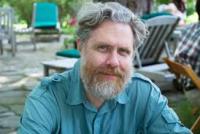
Professor of genetics, Harvard Medical School; director, PersonalGenomes.org, Harvard University
George Church is a prolific, creative and entrepreneurial scientist and engineer whose work has repeatedly pushed forward the frontiers of genome science, biongineering and synthetic biology. In his 1984 Harvard doctoral research, Church developed the first methods for direct genome sequencing, molecular multiplexing and barcode tagging, helping launch a “next generation” of sequencing technologies that eventually led to mapping of the human genome. This work also led directly to the first commercial genome sequence (for the human pathogen Helicobacter pylori) in 1994. His laboratory continues to develop genome-engineering technologies and is now leading experimentation witih CRISPR. In addition, Church founded the Personal Genome Project in 2005 and today is director of [PersonalGenomes.org](http://PersonalGenomes.org_, the world's only open-access database of information on human genomic, environmental and trait data. His lab’s innovations have resulted in the founding of companies in medical diagnostics (Knome, Alacris, AbVitro and Pathogenica) and synthetic biology and therapeutics (Joule, Gen9, Editas, Egenesis, enEvolv and WarpDrive). Church has also been active in developing privacy, biosafety and biosecurity policy. He is director of the NIH Center for Excellence in Genomic Science. He has been elected to both the National Academy of Sciences and National Academy of Engineering and been awarded the Bower Award and Prize for Achievement in Science of the Franklin Institute. He has coauthored 330 papers, 60 patents and a popular 2012 book (with Ed Regis), Regenesis: How Synthetic Biology Will Reinvent Nature and Ourselves. Twitter
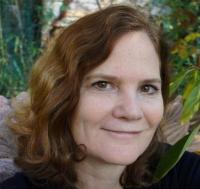
Senior Science Communicator, Emory University
Carol Clark is a senior science communicator at Emory University. She tells the stories of the natural and social sciences by producing a blog, esciencecommons.blogspot.com, news releases and videos. Her journalism background includes working the police beat on a small-town Texas newspaper and as an online producer and features writer for CNN.com. She also lived in Singapore, and in Bangkok, Thailand, where she worked as a reporter and editor, most notably for a magazine about the gemstone trade. Don’t ask her about your diamonds, rubies and sapphires unless you really want to know the truth.
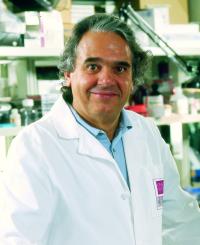
Distinguished University Professor and chair, Department of Molecular Virology, Immunology and Medical Genetics; director, Human Cancer Genetics Program; director, OSU Comprehensive Cancer Center, The Ohio State University
Carlo Croce is internationally renowned for his discoveries that cancer is a genetic disease and of the genes and molecular mechanisms involved in the development of leukemias, lymphomas and other cancers. In 2002 he discovered alterations in microRNA genes in human malignancies; he has since shown that microRNA dysregulation contributes to the development of all tumors, discoveries that have led to innovative treatments based on gene-target discovery. Educated in biochemistry and medicine at the University of Rome “La Sapienza,” he began his career at the Wistar Institute in Philadelphia; he also held appointments at the University of Pennsylvania and Children’s Hospital of Philadelphia and later as director of the cancer research centers at both Temple University and Thomas Jefferson University. He moved to Ohio State in 2004 and now directs research in cancer genetics. A member of the National Academy of Sciences, the Institute of Medicine, the American Academy of Arts and Sciences and the Italian National Academy of Sciences, he has been presented copious honors in the U.S. and Europe and has published more than 1,000 research papers. He is also professor of medical oncology at the University of Ferrara School of Medicine in Italy.
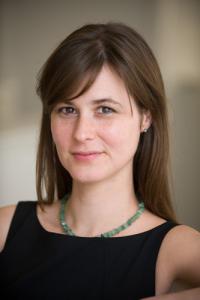
Energy & Climate Policy Reporter, New York Times
Coral Davenport covers energy and climate change policy for The New York Times. Previously, she reported for National Journal, POLITICO, Congressional Quarterly, and the Daily Hampshire Gazette, in Northampton, Massachusetts. From 2001 to 2004 she was based in Athens, Greece, where she wrote stories on economics, terrorism, the environment and the 2004 Olympics for several publications, including the Christian Science Monitor, USA Today and CondeNast Traveler. She is a graduate of Smith College.
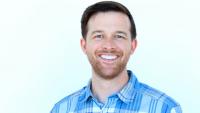
Senior Digital Editor, NOVA; Editor, NOVA Next
Tim De Chant is the senior digital editor at NOVA and editor of NOVA Next, an online publication that focuses big ideas in science and technology. He received his PhD in environmental science from UC Berkeley and his BA from St. Olaf College. He is the founder of Per Square Mile, a blog about density, and has written for Wired, Scientific American, Ars Technica, and the Chicago Tribune, among others.
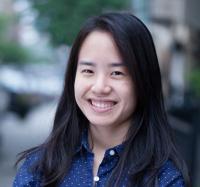
Freelance science reporter
Francie Diep is a freelance science journalist based in Brooklyn. Her work has appeared in Scientific American, Popular Science, and elsewhere.
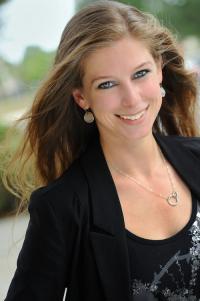
Freelance Science Journalist
Nadia Drake is a freelance science journalist and covers everything from planets to animals to Silicon Valley tech, preferably from some remote, bug-soaked location like the tangled Amazon jungles of Peru. She has an astronomy blog on National Geographic's Phenomena network, and also writes for New Scientist, Nature, National Geographic, and the Proceedings of the National Academy of Sciences. Before making the official leap to freelance, Nadia covered science for Wired, and was on staff at Science News, writing about astronomy. In 2012, she won the D.C. Science Writers Association's Newsbrief Award. Nadia is a 2011 graduate of the U.C. Santa Cruz Science Communication program, and earned her Ph.D. in genetics from Cornell University. She likes the challenge of reporting from the field and has traveled to such places as China, Peru, Indonesian Borneo, and Alaska in pursuit of stories.
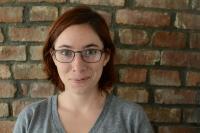
Freelance journalist, podcaster and designer
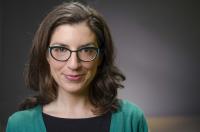
Science and Health News Officer, Drexel University
Rachel Ewing is a PIO at Drexel University in Philadelphia, where she communicates news from a wide swath of the university’s health and science areas, from paleontology to public health (and a lot more that doesn’t fall in between). She also oversees the Drexel News Blog, which she developed and launched in January 2013. Previously she was Manager of New Media Communications at Penn Medicine (2008-2011), where she developed and launched the Penn Medicine News Blog. She holds a BS in biology from Brandeis University and MS degrees in science communication and publication management from Drexel.
Senior Editor, Discover Magazine
Dan Ferber is a senior editor at Discover, where he edits features and Mind over Matter, Discover’s neuroscience and psychology column. Before joining Discover in 2014, he was a long-time contributing correspondent for Science, and he freelanced on science, technology and sustainability for many magazines, including Popular Science, Reader’s Digest, and Audubon. Dan is the coauthor, with the late Paul Epstein, MD, of Changing Planet, Changing Health, the first book on human health impacts of climate change. Before becoming a journalist, Dan was a biologist, and he holds a Ph.D. in biology from Johns Hopkins University.
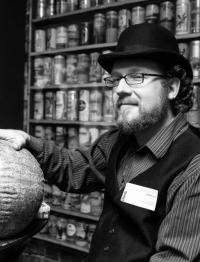
Freelance science writer
Matthew R. Francis is a science writer, physicist, public speaker, educator, and frequent wearer of jaunty hats. He contributes a weekly column about astronomy and space to The Daily Beast. His writing has also appeared in Ars Technica, Slate, Nautilus, Aeon, and a variety of other publications. A former college professor and planetarium director, he holds a Ph.D. in physics and astronomy from Rutgers University. Twitter
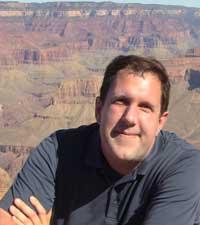
Freelance science journalist, podcast and radio producer, contributor to the Science Writers’ Handbook (on “Multilancing”), former podcast host and multimedia producer for Science magazine
Journalist Robert Frederick primarily reports on physical sciences and economics, but will follow a good story wherever it leads. In doing so, he has reported on most sciences, health, policy, education and business. Working in multiple media, Frederick has credits ranging from Science to NPR, Financial Times to PNAS, among many others. He has held positions at Science, American Scientist, and St. Louis Public Radio. He currently freelances from western North Carolina.
Photo Credit: Virginia Gewin
Freelance